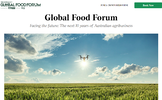Value Collector
Have courage, and be kind.
- Joined
- 13 January 2014
- Posts
- 12,194
- Reactions
- 8,437
I don’t believe I am a hypocrite, I say I want to reduce my impact and that’s what I am doing.Geez this is getting repetitive, I support some aspects - I have leather boots for work which are mandatory. Like you made a long response about reducing your impact, that applies to me and others as well. I have gave a list of what I am doing about it. I have said all along we are both hypocrites, I just seem to be aware of my own hypocrisy than you yours.
You however say you loath an industry, but you still support it with your dollars, so I will accept your view that you are a hypocrite.
You say you want to reduce your impact, but your way of doing it seems pretty in ineffective, you even admit it’s not likely to succeed.
You are of course free to keep doing what ever you want, as I said though if you truly loath animal cruelty, maybe just continue thinking about it and working out effective ways to stop supporting it.
The answer to slavery wasn’t to think of better ways to treat slaves, it was endings slavery.

